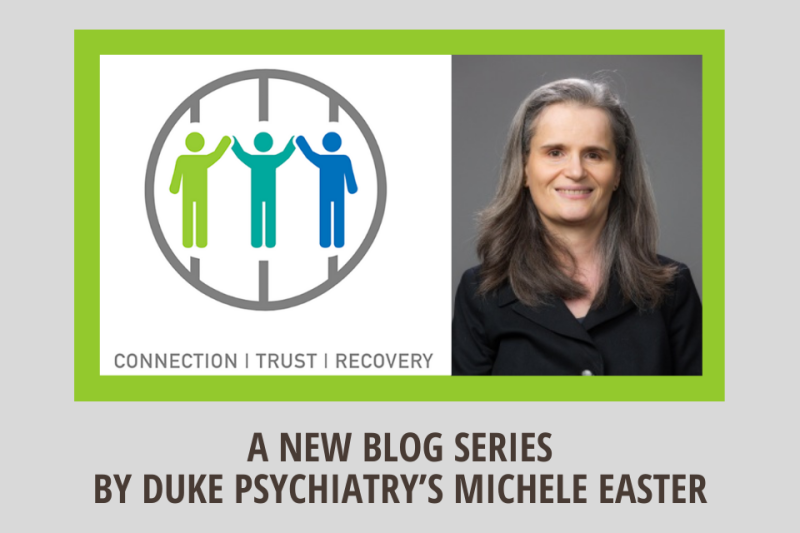
Editor’s Note: If you’ve ever needed help but weren’t sure where to turn, then you know how important just one trustworthy guide can be. This blog post is the first of an occasional series on the Wilson Center for Science & Justice website called “Connection, Trust, and Recovery,” by Michele Easter, PhD. The series is about how peer supporters can help people who are returning to the community after incarceration. Dr. Easter is a member of the Wilson Center's Behavioral Health Core.
Returning community members face many challenges. To succeed in the community, they will need income and a place to live. But they may experience barriers to both employment and housing, made worse by stigma and possibly having lost the support of family or friends. Those with mental health, trauma, substance use and other behavioral health issues face additional challenges.
When given a second chance, it is hard to succeed if you don’t know what to do, where to go to find help, how to bounce back from challenges, and maybe most important, who you can trust.
Peer supporters are people whose lived experiences (of mental health challenges, substance use disorder, criminal legal system involvement, etc.) helps them support others who have gone through something similar. Because they have “been there,” there is less fear of stigma and judgement from those who they are helping. They can also serve as a role model, help to navigate the “system,” and provide other recovery assistance as needed. They may have formal training and certification (e.g., NC’s peer support specialist certification), or not (e.g., recovery support groups).
Read the full post on the Wilson Center for Science & Justice website.